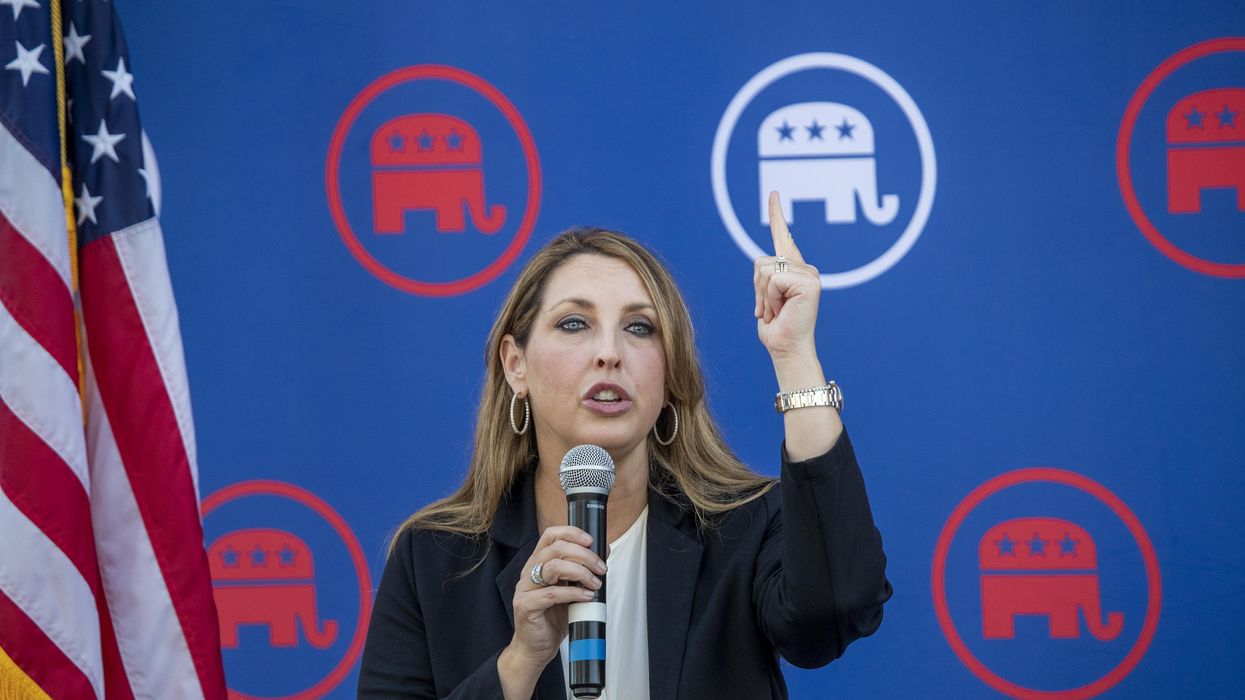Are Republicans angrier than Democrats? Such a broad question cannot be answered at this time, but when it comes to Twitter the angriest Republicans are angrier than the angriest Democrats, according to a new study.
Preply, an online tool for learning languages, studied the Twitter accounts of the 85 political figures with the most followers to determine who is the angriest tweeter. And the “winner” is ... Republican National Committee Chairman Ronna McDaniel.
More than half (52.3 percent) of McDaniel’s September tweets were deemed to be angry by Preply’s machine learning model.
Of the 25 politicians who issue angriest tweets the most often, 19 are Republicans (including the top 15) and five are Democrats. The remaining person is former Rep. Tulsi Gabbard, who ran for the Democratic nomination for president in 2020 but recently became an independent. Rounding out the top five are four other Republican allies of former President Donald Trump: Rep. Louie Gohmert of Texas, Rep. Marjorie Taylor Green of Georgia, Rep. Matt Gaetz of Florida and Sen. Ted Cruz of Texas.
The highest ranked Democrat is Rep. Eric Swalwell of California, a vocal opponent of Trump. He placed 16th in September, with 44.3 percent of his tweets tagged as angry.
In addition to measuring who tweeted angry messages the most often, Preply also measured the intensity of that anger. The same five Republicans landed in the top five on that list as well. While McDaniel again had the highest score, the order of the five was shuffled.
All of this anger comes as the threat of violence against politicians is on the rise. Just days ago, Paul Pelosi, the husband of Speaker Nancy Pelosi, was attacked in their San Francisco home by a man searching for the speaker. That man, Paul DePape, has been linked to far-right conspiracy theories, including unfounded claims about the 2020 election.
The same day as that attack, federal security agencies issued a warning about potential threats against political candidates.
“Angry tweets only make the difficult work of engaging the real differences in our country more challenging. Neither side can wish the other away,” said Keith Allred, executive director of the National Institute for Civil Discourse. “The only option is to address our differences constructively and on the merits.”
The Preply study also examined the difference in tone between politicians' official Twitter accounts and their personal handles. Many were noticeably angrier in their personal accounts.
While Rep. Steve Scalise, the second-ranking Republican in the House of Representatives had the biggest difference between his official and personal “anger” scores, he was followed immediately by three of the most outspoken House Democrats: Rashida Tlaib, Ilhan Omar and Alexandria Ocasio-Cortez.




















Trump & Hegseth gave Mark Kelly a huge 2028 gift